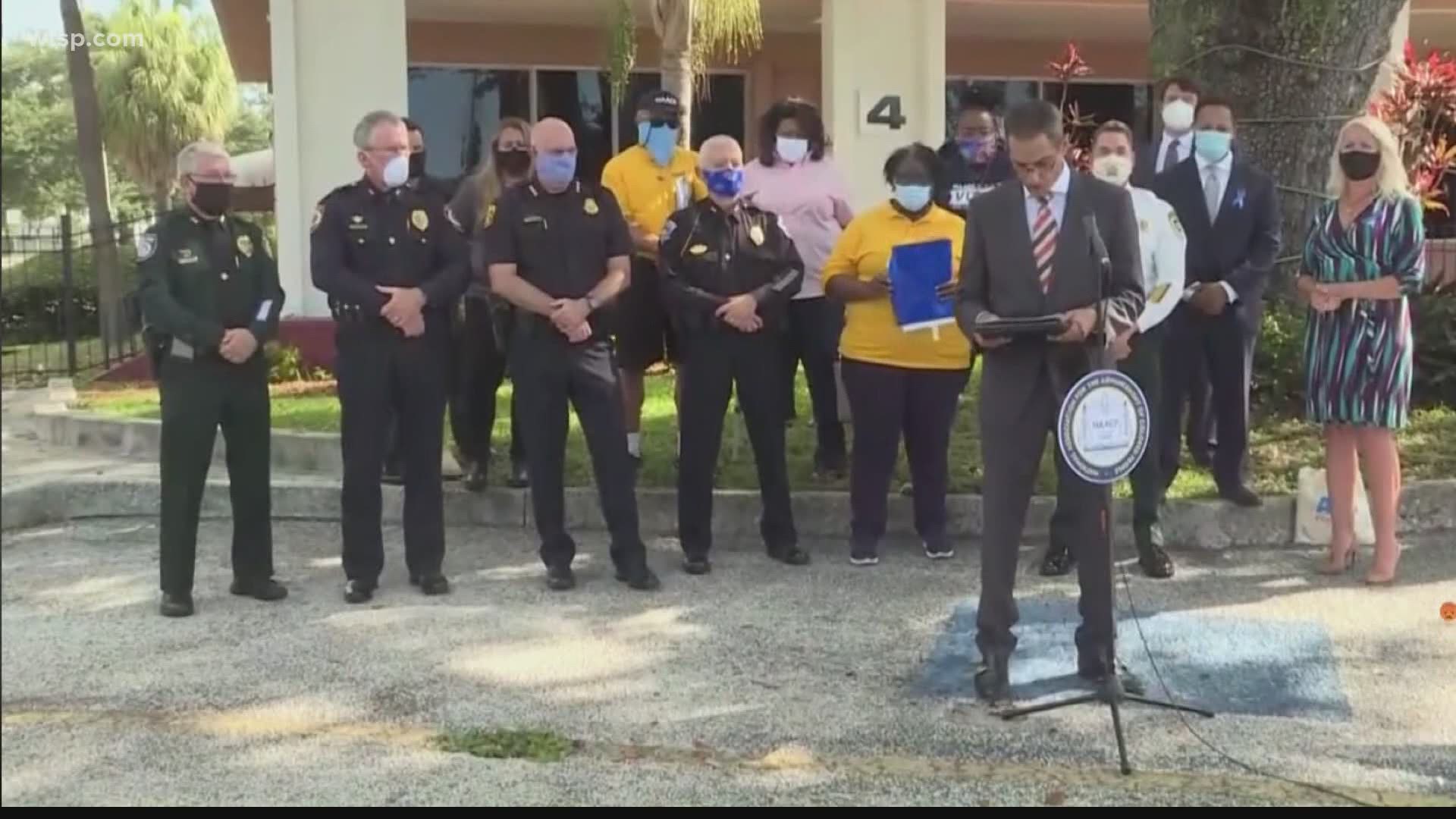On Wednesday, leaders from Hillsborough County’s African American community stood shoulder to shoulder with the leaders of area enforcement agencies.
Together, they announced an agreement described as the first step on a long road to rebuilding trust.
Tampa’s NAACP President Yvette Lewis described the group’s first meeting as uncomfortable, “But it was much needed and long overdue."
The board announced its first set of five commitments from local law enforcement, including policies requiring officers to intervene when they witness the use of excessive force.
There’s also a set of uniform policies across Hillsborough County when it comes to training for civil unrest, de-escalation techniques, a ban on chokeholds and implicit bias education training.
Hillsborough County Sheriff Chad Sheriff Chronister said the Florida Department of Law Enforcement only requires bias training every four years, but they’ve made a commitment to have it every year and include the NAACP and ACLU in that training.
“You have to acknowledge the problem, going forward, before you can actually stop the problem,” said Julius Adams, an attorney with the American Civil Liberties Union.
“So much mistrust is very prevalent within our community,” Community activist Connie Burton said. “It’s real.”
Another part of the agreement calls for the FDLE to now conduct an independent investigation when a fatal shooting at the hands of law enforcement or an in-custody death occurs in Hillsborough County.
“It’s about action. It’s about accountability,” Chronister said. “It’s about trust through transparency.”
There were also commitments to expand community policing and transparency through increased use of police body and squad car cameras.
“Law enforcement is driving too many of those conversations,” Tampa Police Chief Brian Dugan said. “And maybe we need to start listening more so that we can get to where we need to be.”
In addition to the five commitments, the NAACP renewed its call for changes in Tampa’s Citizen Review Board, asking Mayor Jane Castor to transfer oversight of the board to the City Council.
“I put the challenge back out there to the city of Tampa,” Lewis said. “If you’re all about diversity, meet us at the table.”
Members of the newly formed board say they will continue to meet on a monthly basis for now, addressing the most pressing issues, and then beyond that on a quarterly basis or as needed to keep the lines of communication open as they hopefully continue to build trust.
Their next meeting is set for July 22.

